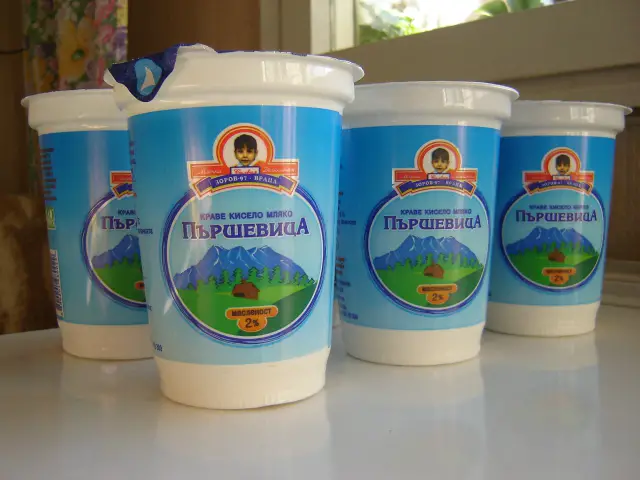Bulgarians have a very long history of making yogurt. In fact, they were said to have invented it thousands of years ago when they learned to ferment sheep’s milk using the warmth of their bodies. A bacteria responsible for the fermentation process, Lactobacillus bulgaricus, is thought to be responsible for the longevity of the Bulgarian people. Bulgarian yogurt is heavily used for cooking in Bulgaria. The people use it for such things as soups, dressings, desserts, and more. Bulgarian yogurt remains as one of the most popular styles of yogurt in the world.
How to Make Bulgarian Yogurt?
Making Bulgarian yogurt is super easy. You only need milk, live cultures, cooking thermometer, stove, pan, spoon, and yogurt maker or an appliance (stove, toaster oven, etc) that can maintain 110 degrees for several hours. Below is a good video showing the steps on how to make Bulgarian yogurt.
What Makes Bulgarian Yogurt, Bulgarian?
Typically Bulgarian yogurt is made by heating and fermenting milk with added live cultures to change the lactose into lactic acid, making its classic thick texture. The two bacteria that make traditional Bulgarian yogurt are Lactobacillus bulgaricus and Streptococcus thermophilus. Unlike some Greek yogurt products, traditional Bulgarian yogurt does not contain thickeners like pectin. The thickening is naturally done by the bacteria. True Bulgarian yogurt from the Balkans actual is said to have a unique flavor from the cows nutrients received from grazing and the bacteria used to ferment the yogurt.
Brands of Bulgarian Yogurt in the United States
Trimona is based out of New York and uses milk from cows that are grass feed. There are no preservatives, thickeners, artificial hormones or antibiotics, and the product is gluten free. The yogurt is solely made from whole milk and is not strained like most Greek yogurt products. The current plain yogurt product the company sells is made from very simple ingredients: pasteurized organic milk and live and active cultures: lactobacillus bulgaricus, streptococcus thermophilius, lactobacillus acidophilus, bifidobacterium. This yogurt leaves out the junk (added sugar, additives, thickeners, etc.) and uses only the core ingredients that are essential for a pure Bulgarian yogurt.
White Mountain is based out of Texas and like Trimona is made with only milk and live cultures with no additives. The company provides organic and all-natural varieties with the options of nonfat or whole milk products. The live cultures used are L. Acidophilus, L. Bulgaricus, S. Thermophilus, B. Bifidum.
Bulgarian Yogurt Health Benefits
The benefits of Bulgarian yogurt are similar to Greek yogurt or any other yogurt. Some of the benefits include high calcium for the possible prevention of osteoporosis, a good source of protein (8g or more per cup), low in calories (140 calories per cup of whole milk yogurt and 90 calories for nonfat), and contains probiotics which aid in healthy immune and intestinal systems. One of the greatest benefits is that you can read and understand the simple ingredients and know you are eating something healthy.

